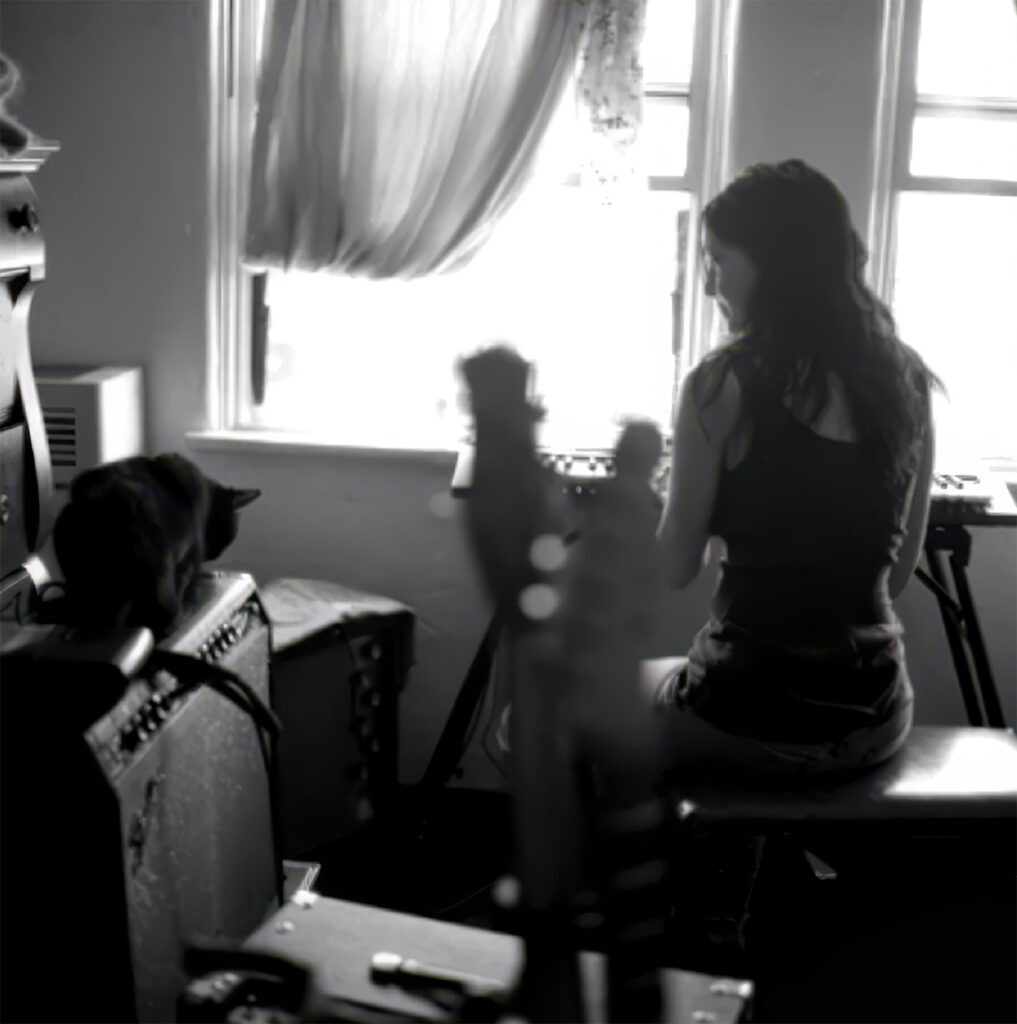Lisa Ruth Germano was born on June 27, 1958, in Mishawaka, Indiana, into a musically inclined Italian-American family. Her father, Rocco, was a violinist and conductor, and her mother, Betty, was a music teacher. Naturally, music was central to her upbringing, as it was for her five siblings. In interviews, Lisa has said her parents instructed each of their children to choose an instrument around the age of seven or eight, and encouraged them to continue playing throughout their schooling.
Lisa chose the violin, but she also played piano, recorder, and eventually branched out to other instruments including accordion, autoharp, and mandolin. She continued her musical education at Indiana University, honing her skills in both composition and performance.
In her early twenties, Lisa began performing fiddle at a local venue called the Little Nashville Opry, joining local bands on stage. These small gigs eventually led to her big break: an invitation to join John Mellencamp’s touring band. In 1985, she joined Mellencamp’s Scarecrow tour, though the intensity of touring life and playing to massive crowds quickly took its toll. Feeling overwhelmed by the shift, Lisa entered therapy and began using songwriting as a coping mechanism.
Her tenure with Mellencamp spanned from 1985 to 1993, during which she contributed to several albums, including Scarecrow, The Lonesome Jubilee, and Big Daddy. Her work with Mellencamp opened doors to collaborations with other artists—she performed both on stage and in the studio with bands like Simple Minds and Indigo Girls.

Mellencamp encouraged Lisa to pursue her own songwriting. In 1991, she self-financed and released her debut solo album, On the Way Down from the Moon Palace, through her own label, Major Bill Records—a nod to both the cost of the project and her dry sense of humor. It marked the beginning of her deeply personal, genre-defying solo career.
Lisa has described Moon Palace as a kind of demo: a largely acoustic collection that gave her the freedom to explore her creative voice. Though the album didn’t gain widespread recognition, it caught the attention of Capitol Records, who backed the release of her second album, Happiness, in 1993.
Ironically, Happiness was released amid a major shakeup at Capitol and received little promotion. Fortunately, Lisa was able to retain the rights and brought the album to the influential British label 4AD. Label founder Ivo Watts-Russell, a fan of Lisa’s work, re-released Happiness in 1994 with new sequencing and packaging. By that time, Lisa was already at work on her follow-up, the harrowing Geek the Girl.
Released later that same year, Geek the Girl became her critical breakthrough. Its raw themes of trauma, isolation, and self-perception were paired with dreamlike arrangements of violin, piano, and lo-fi electronics. The album is frequently cited as Germano’s masterpiece and earned a spot on Spin magazine’s list of the “Top 90 Albums of the 1990s.”

In 1996, Lisa released Excerpts from a Love Circus, which expanded her sonic palette with whimsical samples and childlike interludes while continuing to explore themes of loneliness, identity, and emotional conflict. Though brighter and more accessible than Geek the Girl, it remained deeply personal and upheld her distinctive songwriting style, complete with purrs from cats Dorothy and Miamo-Tutti.
The following year, Lisa collaborated with members of Calexico and Giant Sand under the name OP8, turning a three-song experiment into a full album called Slush. The project featured a gender-swapping duet of the Lee Hazlewood classic “Sand” and introduced “If I Think of Love,” which would later appear on her next solo record.
That album, Slide, arrived in 1998. Co-produced with Tchad Blake, it further refined Lisa’s introspective sound. Critics praised Slide as one of her most accessible works, but sales fell short, and 4AD dropped her from their roster. Still committed to the music, Lisa toured in support of Slide and began rehearsals to join the Smashing Pumpkins’ tour for their album Adore. Though after weeks of preparation, she was abruptly uninvited—without explanation—leaving her questioning her future in music.
Returning back to southern California after touring for Slide, Germano stepped away from the industry, and considered leaving music altogether. It was during this period, she worked at Book Soup, a bookstore in Los Angeles, later describing that time as necessary to recover from the pressures of touring and recording.

While at the bookstore, Lisa met producer Tony Berg, who was familiar with her music and encouraged her return as an artist under his label. Soon after, she reemerged in 2003 with Lullaby for Liquid Pig, released through ARTISTdirect’s Ineffable imprint. Featuring contributions from Johnny Marr and Neil Finn, it was her most confessional work yet—quiet, aching, and largely centered on songs about addiction and behaviors.
Her next album, In the Maybe World, arrived in 2006 via Young God Records, run by Michael Gira of Swans. Its themes explored death and the afterlife with ghostly, surreal storytelling. Three years later, she followed up with Magic Neighbor, blending chamber pop with wry melancholy, structured piano compositions, and subtle humor. Lisa’s last album was 2013’s No Elephants.
In addition to an impressive solo catalog that others would be envious of, Lisa has also contributed to an eclectic range of artists, including the legendary David Bowie, Iggy Pop, Simple Minds, Sheryl Crow, Neil Finn, and near countless others.
Throughout her career, critics have often struggled to categorize Lisa’s work. Her music blends elements of folk, classical, dream pop, and experimental rock, paired with emotive lyrics that explore everything from mental health, dreams, self-image, and the surreal aspects of everyday life. Her unabashed emotional candor, unorthodox arrangements, and the quiet force of her delivery, place Lisa in a category that is distinctly her own. It’s the culmination of all these things that maker her such an extraordinary artist and songwriter.
Though she has never been a mainstream figure (and likely prefers it that way), Lisa Germano has influenced a generation of artists who value vulnerability, authenticity, and genre-defying songwriting, and her body of work continues to resonate with listeners drawn to honesty, intimacy, and the beauty found in imperfection.






